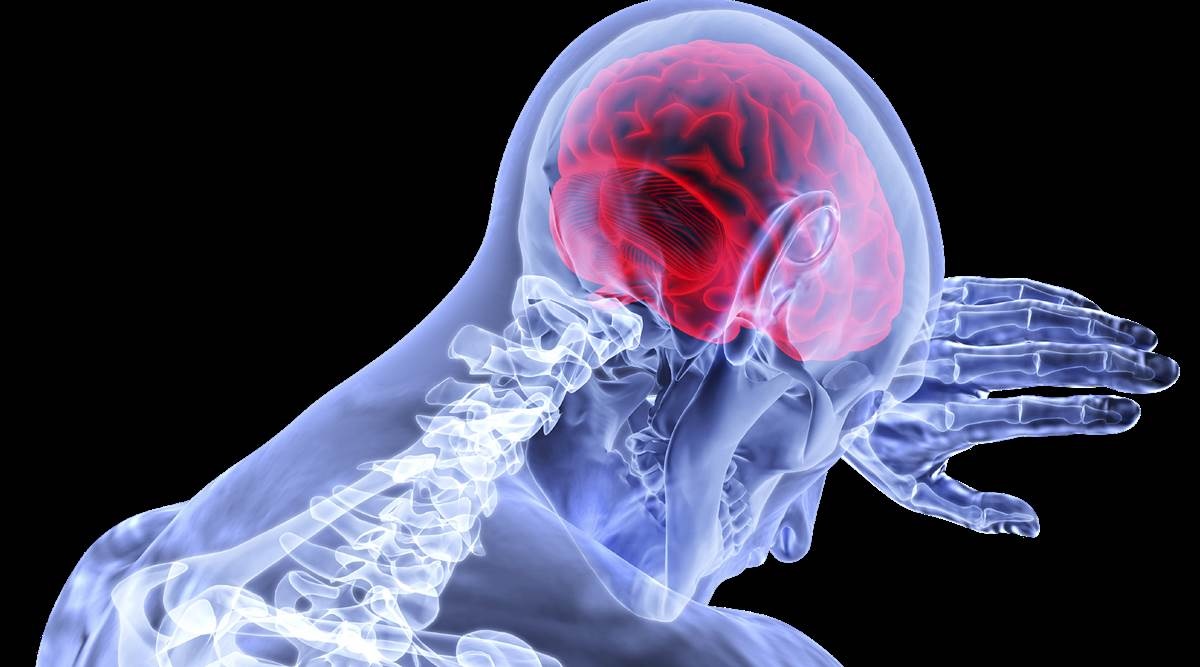"The disease is a rapidly progressing encephalopathy characterised by fever, depressed level of consciousness, and seizures of unknown etiology (probably virals)," said Dr Sudip Chowdhury, consultant paediatrician, Columbia Asia Hospital, Palam Vihar, Gurugram

Adding to the increasing list of complications being experienced post-Covid recovery, a 13-year-old boy in Karnataka’s Davanagere has been diagnosed with Acute Necrotizing Encephalopathy of Childhood (ANEC). News agency ANI quoted Dr Kalappanavar, medical director SSIMS (Sri Siddhartha Institute of Management Studies), Davanagere who stated that “This is probably the first case in a child post-recovery”.
According to the doctor, the boy, whose condition is now improving, showed symptoms of respiratory failure on admission and was put on a ventilator for three days.
Symptoms
As per a 2013-study, ANEC is a disease characterised by respiratory or gastrointestinal infection and high fever accompanied by rapid alteration of consciousness and seizures.
“This disease is nearly exclusively seen in East Asian infants and children who had previously been completely healthy. Serial magnetic resonance imaging examinations have demonstrated symmetric lesions involving the thalami, brainstem, cerebellum, and white matter in this disease. The condition accompanies a poor prognosis with high morbidity and mortality rates,” the National Center for Biotechnology Information study noted.
The study added that while ANEC is an atypical encephalopathy seen “almost exclusively in previously healthy young children or infants of East Asia including Japan and Taiwan, its sporadic cases have been reported from all around the world”.
Dr Sudip Chowdhury, consultant paediatrician, Columbia Asia Hospital, Palam Vihar, Gurugram, said: “The disease is a rapidly progressing encephalopathy characterised by fever, depressed level of consciousness, and seizures of unknown etiology (probably virals).”
The young patient usually presents with symptoms of a central nervous system (brain and spinal chord) disorder viz seizures, loss of consciousness, weakness/paralysis of limbs, followed by rapid deterioration of the patient’s condition, Dr (Brig) Ranjeet Ghuliani, professor Paediatrics, Additional Medical Superintendent, Sharda Hospital told indianexpress.com.
What causes it?
It is a multi-factorial disorder i.e. there is a genetic component combined with an environmental insult – at times a viral infection. “These two factors combine to cause most likely an autoimmune disorder causing extensive damage to the brain leading to a high degree of morbidity and mortality,” explained Dr Ghuliani.
How is it related to Covid-19?
“As SARS 2- Covid 19 is also a viral infection, it has the potential of causing such an illness,” said Dr Ghuliani.
Diagnosis and treatment
The study noted how patients are usually treated by supportive care including hydration, electrolyte balancing, prevention of infection, and seizure and spasm control. ‘Treatment with levodopa has also been suggested. We performed serum therapy, infection prevention, supportive ventilation, and administered anticonvulsants, L-dopa, trihexyphenidyl, and IVIG,’ the authors of the 2013 study noted while highlighting that though the “disease is rare, it should not be underestimated”.
Agreed Dr Chowdhury, and said, “The diagnosis depends on the clinical presentation and characteristic neuroimaging findings. Treatment modalities are not well-established; treated with specific antiviral agents as the initial step, followed by steroids and immunoglobulin, as well as supportive care. Patients with ANEC have a variable prognosis, but mortality remains very high.”
For more lifestyle news, follow us: Twitter: lifestyle_ie | Facebook: IE Lifestyle | Instagram: ie_lifestyle
Source: Read Full Article
